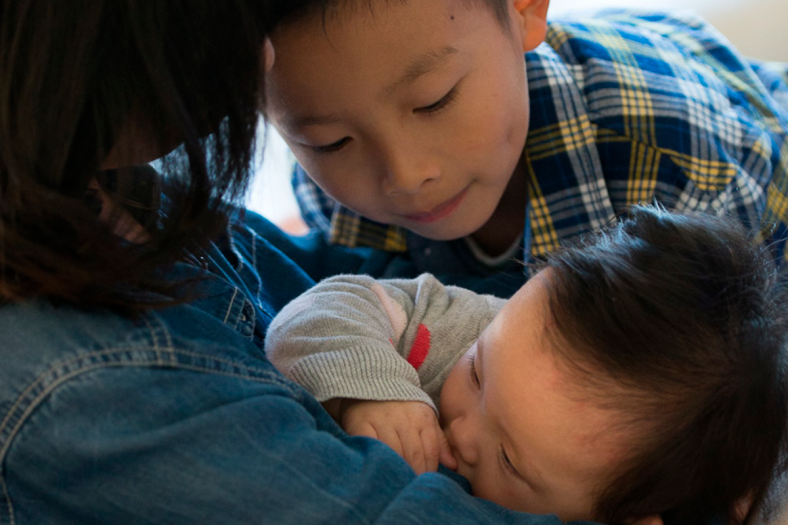Oxfam staff are more aware and challenging of unacceptable behaviors as the organisation continues deep and wide-ranging reforms of its safeguarding work and culture, under its Ten-Point Plan. Oxfam publishes its fourth ‘quarterly progress’ report today against this plan.
Oxfam’s new Standard Operating Procedures are improving the timeliness and consistency of its safeguarding reporting, including to donors and authorities. Oxfam country teams are briefing governments, donors and other agencies about new systems and its affiliates are reconfirming their compliance with government and donor standards. In addition, Oxfam has:
- Agreed a new global Safeguarding Shared Service and single case management system to oversee and deliver safeguarding across the Oxfam confederation;
- Introduced child safeguarding, Protection against Sexual Exploitation and Abuse, sexual diversity, ethical content gathering and gender identity policies, and is currently approving new youth and digital safeguarding policies;
- Driving culture change with an increased budget and new resources across its confederation; preparing workshops for staff self-reflection, discussion and action;
- Introduced new roles to address safeguarding and culture change, including an Oxfam International Safeguarding Associate Director;
- Rolling out an enhanced staff induction course with a greater focus on behaviours, culture and safeguarding;
- Introducing a new performance management process that emphasises how we work as individuals and collectively – as well as about what we achieve – and has a focus on accountability;
- Agreed a confederation wide commitment to ensure that Oxfam’s 2020 Strategic Plan and ways of working are grounded in feminist principles and equality.
The Independent Commission that Oxfam set up in March 2018 to review its culture and safeguarding will publish its final report next month after commissioners visited country programs in the past three months (nine in total since its inception) and reviewed findings of both an expert case management investigation and a new community research project.
Oxfam ran its own Staff Culture Survey, answered by nearly 4000 colleagues. This is intended to open up honest discussion and self-reflection about culture change. It will help to deepen Oxfam’s understanding of all the serious factors that contribute to staff having problems with work-life balance and wellbeing, speaking out in work settings and experiencing lack of accountability. It revealed:
- There is not a single simple truth about how staff experience Oxfam culture, but many different experiences. Most staff say they feel safe to report safeguarding issues through formal reporting mechanisms and discussing difficult issues with their manager.
- While only a minority of staff have negative experiences in these aspects, there are too many, and it is vital that Oxfam keeps working to improve. When staff have a negative experience, they said it is most likely to be related to hierarchy, gender, control of resources and race.
In its second disclosure of safeguarding data, as part of its commitment to transparency, Oxfam reports in the past year (April 2018-March 2019) there were 294 cases reported – 221 were closed and 73 remain open. This number has risen significantly compared to last year, which shows that people – particularly staff – have a greater understanding of their rights and trust in Oxfam’s improved systems. Oxfam expects case numbers to continue to rise, with a greater proportion coming from partners and community members, as their understanding improves of their rights and trust in Oxfam’s systems. The closed caseload consisted of:
- 23 cases of sexual abuse;
- 25 cases of exploitation (including actions such as paying for sex);
- 74 cases of sexual harassment;
- 98 cases of other internal reportable issues (such as bullying, other inappropriate conduct against the code of conduct);
- One case where information was not provided.
The following actions were taken:
- 79 cases resulted in disciplinary action, including 43 dismissals
- 45 cases of non-disciplinary action e.g. training in safeguarding and code of conduct
- 58 cases where there was insufficient evidence and the allegation not upheld
- 10 resignations (two prior to the allegation being raised and eight afterward)
- Seven cases: no information available
- One case that was later identified as not related to safeguarding
- 21 cases: the complainant did not wish to go forward to an investigation.
Oxfam International Executive Director Winnie Byanyima said: “Oxfam is becoming a different organisation today as a result of our 10-Point Action Plan – as we must. We have underpinned our unconditional apologies for the specific mistakes we made in Haiti in 2011 with real action. We’re determined to learn, cooperate and improve and I believe we’re beginning to see the tangible results on the long journey that we’re on.
“We have so much more to do. That Oxfam staff now have a fundamentally deeper appreciation of what is acceptable behaviour and what is not, and more trust in the new processes that we have in challenging it, is progress. We have an enhanced framework of stronger safeguarding policies to better help protect people. We’re humbly reaching out to experts and allies, sharing information and lessons. We are conducting open, honest reflections about safer, stronger working cultures and how to help ensure that all staff are living the values to which we aspire.
“Changing culture is a permanent journey of understanding, self-reflection and transformations, the subtle and the profound ideas and norms that shape our daily lives. This has been neglected for too long. Changing it takes time and humility, and I applaud our ordinary staff who are driving this transformation. Day by day, even as we get that little bit stronger, and we learn new, difficult lessons. Day by day, we are more open and eager to keep improving.”
Oxfam has previously published three progress reports against its Ten-Point Plan:
- In January 2019, explaining its increase in the number of staff safeguarding experts in its teams; tripling the amount it will spend on gender justice programming; and new tools and plans to help partners to improve their own safeguarding;
- In October 2018, explaining its new safeguarding policies and practices; its first six-monthly disclosure of safeguarding data; and further improvements to the ways people can report concerns;
- In July 2018, updating on the Independent Commission’s work; training 119 new safeguarding investigators; a €2m investment in safeguarding across Oxfam globally; new multi-language whistle-blowing hot-lines and other new practises.







